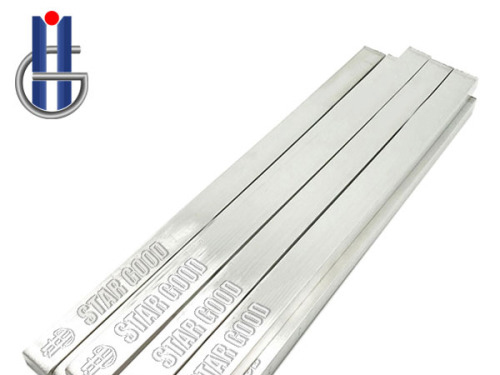High purity tin ingot, a refined and specialized form of tin, plays a pivotal role in various industries due to its exceptional purity and unique properties. This article explores the significance of
high purity tin ingot and its diverse applications, highlighting its contribution to advancements in technology, manufacturing, and other crucial sectors.
Exceptional Purity Levels:
High purity tin ingot is characterized by its exceptionally high levels of purity, often exceeding 99.9%. This purity is achieved through rigorous refining processes, ensuring that the tin meets stringent quality standards. The absence of impurities makes high purity tin ideal for applications where even trace elements can have significant impacts.
Electronics and Soldering Applications:
One of the primary applications of high purity tin ingot is in the electronics industry. It is a key component in the manufacturing of soldering materials. The purity of the tin is crucial in soldering processes, as any impurities can compromise the reliability and performance of electronic components.
Semiconductor Manufacturing:
High purity tin is indispensable in the semiconductor industry. It is used in the production of advanced semiconductor devices, where the absence of contaminants is critical for ensuring the precise performance of these components. High purity tin contributes to the fabrication of reliable and high-performance semiconductor products.
Solar Panel Production:
The solar energy sector relies on high purity tin ingot for the production of photovoltaic cells. Tin is used as a coating material in these cells, and the high purity ensures optimal conductivity and efficiency. The electronic properties of high purity tin contribute to the effectiveness of solar panels in converting sunlight into electricity.
Food Packaging and Preservation:
Tin has a long history of use in food packaging due to its corrosion resistance and malleability. High purity tin ingot, with its minimal impurities, is particularly suitable for applications where contact with food is involved. It helps maintain the quality and safety of packaged food products.
Corrosion Resistance in Alloys:
High purity tin is often alloyed with other metals to enhance their corrosion resistance. Tin-based alloys, such as those containing copper or lead, are used in various applications ranging from bearings to plumbing. The purity of the tin contributes to the overall performance and longevity of these alloys.
Medical Applications:
The medical industry benefits from high purity tin in applications such as medical imaging and diagnostics. Tin is used in the production of X-ray contrast agents, where its purity is crucial to ensure accurate and reliable imaging results.
Environmental Considerations:
The recyclability of high purity tin contributes to sustainable practices. As a recyclable material, tin supports environmentally friendly initiatives by reducing the demand for new raw materials and minimizing waste.
Conclusion:
In conclusion, high purity tin ingot stands as a critical material in modern industries, with applications ranging from electronics and semiconductor manufacturing to solar energy, food packaging, and medical fields. Its exceptional purity levels make it an essential component in ensuring the reliability, efficiency, and safety of various products and processes. As technological advancements continue, the role of high purity tin ingot is likely to expand, further influencing the landscape of diverse industries.


 High Purity Tin Ingot: Crucial Applications and Benefits
High Purity Tin Ingot: Crucial Applications and Benefits
 Pure Tin Ingot: Essential Material for Diverse Industrial Applications
Pure Tin Ingot: Essential Material for Diverse Industrial Applications
 Unlocking the Potential of Pure Tin Bars: Essential Components for Diverse Industries
Unlocking the Potential of Pure Tin Bars: Essential Components for Diverse Industries
 Lead Bar for Sale: Uses, Specifications, and Buying Considerations
Lead Bar for Sale: Uses, Specifications, and Buying Considerations